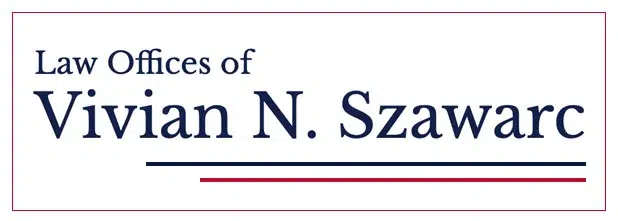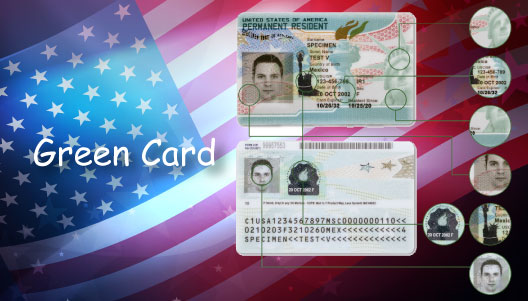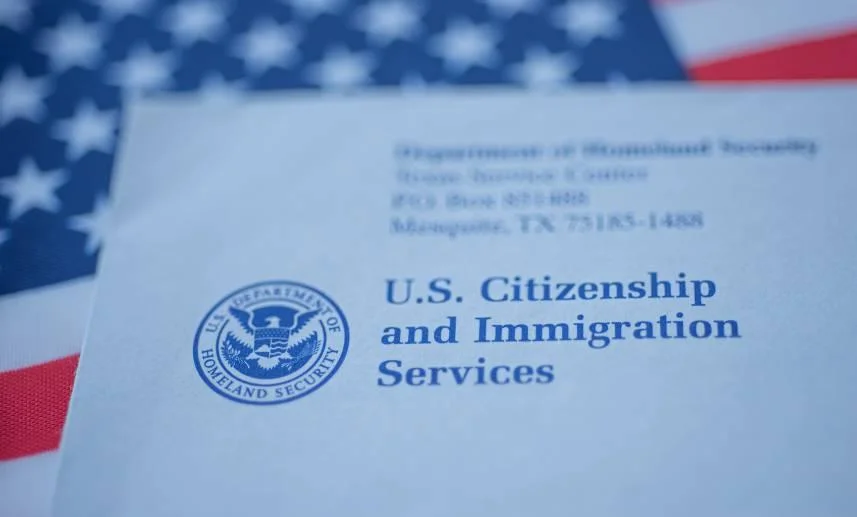How to apply for a green card?
To apply for permanent residence in the United States, you must apply to the appropriate immigration authorities. It is essential to have an attorney with experience in immigration cases, such as green cards, immigrant visas, naturalization, and US citizenship, to properly represent you in these proceedings.
- If you are in the United States, you may require an adjustment of status.
- If you reside outside the United States, it may involve consular processing.
Before you start the application process, there are two questions you must answer first:
1. Are you eligible to apply?
U.S. immigration laws offer several avenues to apply for a green card. The requirements vary depending on the category of immigrant that applies. To apply, you must be eligible in one of the following categories.
a) Green card through the family
Immediate relative of a US citizen
- Spouse of a US citizen
- Unmarried child under age 21 of a U.S. citizen
- Parent of a US citizen who is at least 21 years old
Another relative of a U.S. citizen or relative of a lawful permanent resident under the family-based preference categories
Family member of US citizen:
-
- Unmarried son or daughter over 21 years of age
- Married son or daughter
Legal permanent resident family member:
-
- Spouse
- Unmarried child under 21 years of age
- Unmarried son or daughter over 21 years of age
Fiancé(e) of a U.S. citizen or child of fiancé(e)
-
- Person admitted to the U.S. as fiancé(e) of a U.S. citizen (K-1 nonimmigrant)
- Person admitted to the US as a child of a fiancé(e) of a US citizen (K-2 nonimmigrant)
Widower of a US citizen
Widow or widower of a U.S. citizen and were married to their U.S. citizen spouse at the time their spouse died
VAWA Self-Petitioner: Victim of Extreme Assault or Cruelty
Abused spouse, child, or parent of a U.S. citizen or lawful permanent resident.
b) Green card through employment
Immigrant Worker:
First Preference Immigrant Worker:
- Extraordinary ability in science, arts, education, business, or athletics.
- Outstanding professor, researcher, multinational executive manager.
Second Preference Immigrant Worker:
- Profession that requires an advanced degree.
- Exceptional ability in sciences, arts, business.
- Seeks national interest exemption.
Third Preference Immigrant Worker:
- Qualified worker (min. 2 years of experience).
- Professional (requires bachelor's degree).
- Unskilled worker (less than 2 years of experience).
Physician National Interest Exemption
Underserved Area Physician: Works full-time in a designated clinical practice and meets requirements.
Immigrant investor
EB-5 Investor Requirement: Invest $1,050,000 in new US business with 10 qualified employees.
c) Green Card as a Special Immigrant
Religious worker for a non-profit organization, Special Immigrant Juvenile under court protection, National of Afghanistan or Iraq with ties to the US government, International media broadcaster for USAGM, and International organization or NATO employee , or one's relative.
d) Green card through refugee or asylee status
- Asylum person with a status granted at least 1 year ago and refugee admitted at least 1 year ago.
e) Green card for victims of human trafficking and crimes
Individual with a T visa as a victim of human trafficking and a U visa as a victim of a crime.
f) Green Card for Victims of Abuse
- Abused spouses of US citizens or lawful permanent residents.
- Abused children (unmarried and under 21 years of age) of US citizens or legal permanent residents.
- Abused parents of US citizens.
- Special Immigrant Juveniles (SIJ) who have been abused, abandoned or neglected by their parents.
- Spouses or children abused under the Cuban Adjustment Law.
- Abused spouses or children of Cuban natives or citizens.
- Spouses or children abused under the Haitian Refugee Immigrant Fairness Act (HRIFA).
- Abused spouses or children of legal permanent residents who obtained their green card based on HRIFA.
FREQUENT QUESTIONS
What are the limitations of a Green Card?
When obtaining permanent residency, keep these responsibilities in mind:
- Comply with federal, state and local laws.
- Pay the corresponding taxes.
- Register with the Selective Service (if you are a man between 18 and 26 years old).
- Always carry your Green Card as identification.
Green Card Limitations:
- Traveling outside the country for less than six months is permitted; longer requires special permission.
- You do not have the right to vote, reserved for citizens.
- Committing fraud or serious crimes can result in the loss of permanent residence.
Who can apply for family-based permanent residence?
R= Granted to immediate family members of US citizens or permanent residents.
You can apply for this visa:
- Spouse or parent of a US citizen.
- Sons and daughters of US citizens.
- Brothers and sisters of US citizens if they are over 21 years of age.
- Spouses of permanent residents.
- Unmarried sons and daughters of permanent residents.
What are the benefits of becoming a permanent resident?
Obtaining permanent residency in the US gives you important benefits:
- Live indefinitely in the country.
- Work legally under state labor laws.
- Freedom of movement and choice of status.
- Access to social, medical and educational benefits.
- Obtaining a driver's license.
- Meeting with immediate family members and possibility of obtaining residency.
- Opportunity to seek citizenship after meeting requirements.
What happens if my residency has expired?
Renew your Green Card before it expires, as it is valid for 10 years. If you are in the US and it has expired, file Form I-90, go to biometric services and get a new one. Do not travel with an expired card, because you could have problems when you return. If you are abroad, renew it at the consulate to avoid losing your resident status.
How long does it take to ask my parents?
Only a US citizen over the age of 21 can apply for a Green Card for his or her parents. The request has no annual limit and usually takes 6 to 8 months.
How much does American residency for marriage cost?
The total cost of permanent residence by marriage is approximately $1,960, which includes application fees and biometric services, in addition to the medical exam.
How much does it cost to renew permanent residence?
The total cost to file Form I-90 and request renewal of the Permanent Resident Card (Green Card) is $540, which includes the form fee and biometric services.
What to do to renew permanent residence?
You must renew your Permanent Resident Card (Green Card) before it expires, generally every 10 years. If it is lost, damaged, or contains errors, you can also request a replacement by filing Form I-90 with USCIS.
How do I know if my residency has been approved?
Once the petition is approved (form I-130) and the availability of visas is verified, you must submit the application for a permanent resident card (form I-485), undergo biometric data collection and attend an interview. You can track your application online through the USCIS website.
How long is permanent residence taking?
Permanent residence processing times vary depending on the type of application and preference category. For example:
- Immediate relatives of US citizens: 6 to 8 months.
- Children over 21 years of age of US citizens: approximately 30 months.
- Spouses and children under 21 years of age of permanent residents: 20 to 25 months.
- Single children over 21 years of age of permanent residents: 50 to 60 months.
What documents are needed to apply for permanent residence for a family member?
To apply for permanent residence for your family members, you need Form I-130, proof of your permanent resident status, and documents proving your relationship. The petition is sent to the National Visa Center (NVC), which forwards it to the consulate of the family member's country of origin. The consulate assigns a visa when available and begins the process.
What family members can a permanent resident request?
U.S. permanent residents can apply for their spouse and unmarried children under or over age 21 to obtain resident status.
What are the requirements for permanent residence?
The requirements to apply for permanent residence in the United States vary depending on your personal situation. US citizens can apply for their immediate family members with priority. Other family members have specific preference categories. Legal permanent residents can also apply for family members with their own preferences. For employment-based applications, it is important to consider category, education level, and work experience. Consult our lawyers for specialized advice.
What are the types of residence in the USA?
Permanent residency in the US allows you to live and work legally. Categories include family members of citizens and residents, immigrants for employment, religious workers, international media, asylum, trafficking victims, and immigrant investors who create jobs and make specific investments.
How can you be a legal permanent resident in the United States?
Immigration authorities have categories for green card eligibility based on family relationships, job offers, asylum/refugee, and citizen parents with children under 21 years of age.






